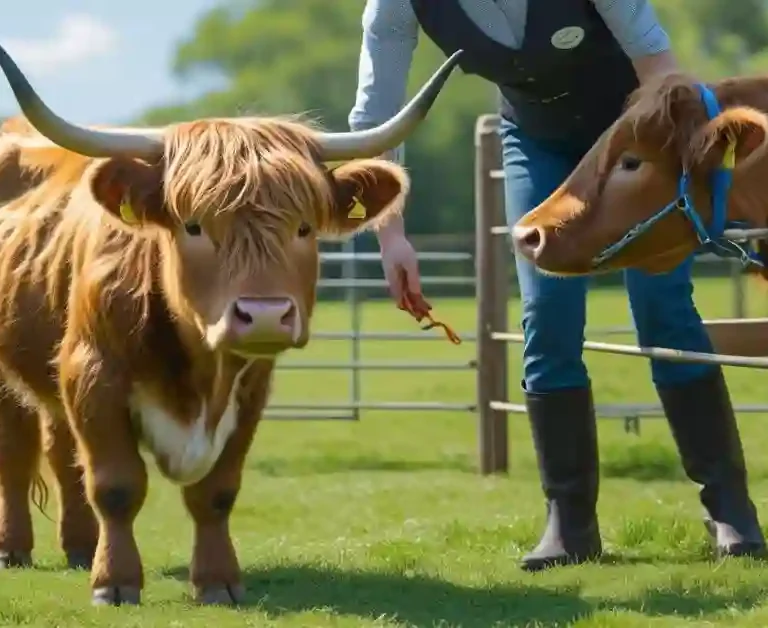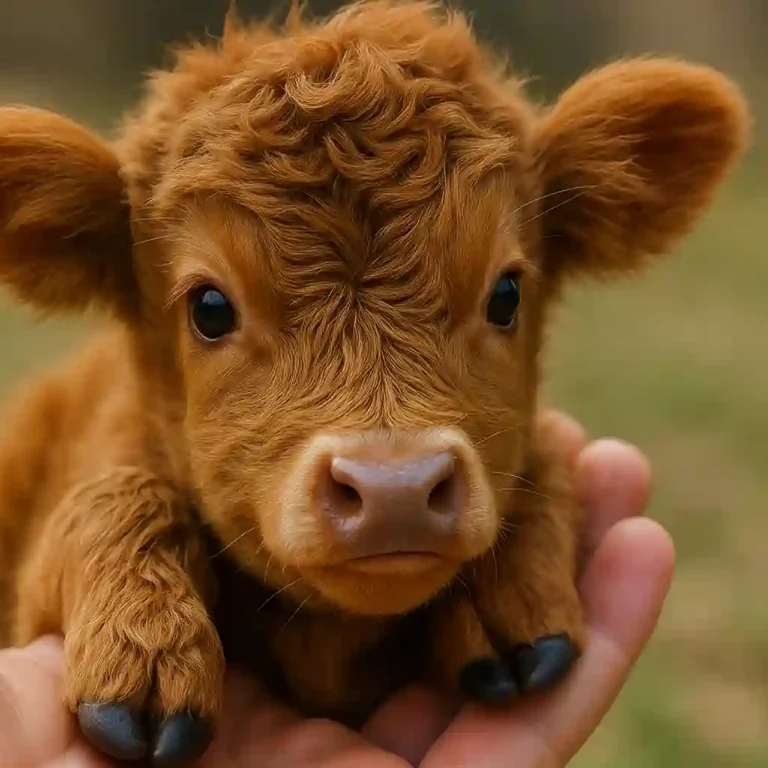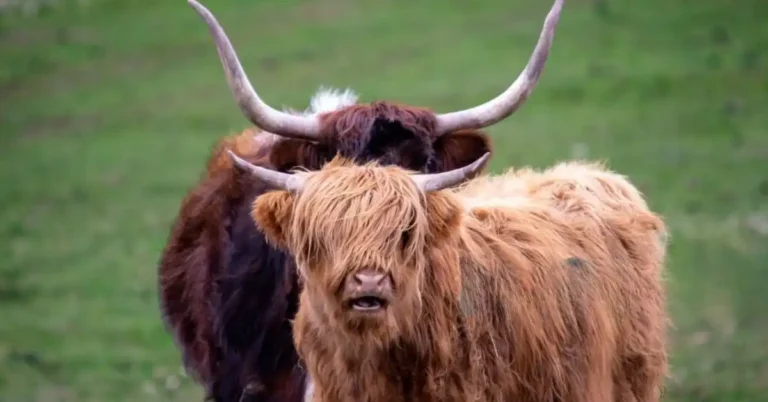Mini Highland Cow Breeding: Guide to Raising Healthy Calves
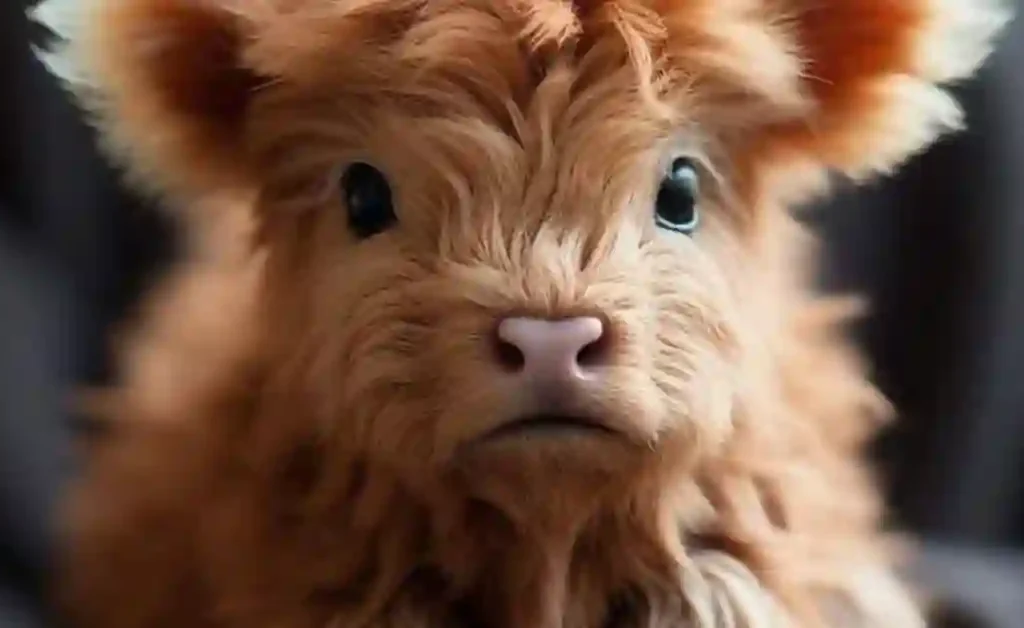
The practice of mini Highland cow breeding cattle using Dexter cattle with the chondroid gene is unethical. This gene causes bulldog calves, which are born with severe skeletal deformities and die within hours.
This practice also introduces the chondroid gene into the Highland cattle population, potentially increasing skeletal problems and other health issues in future generations. Cattle Breeders should abandon this practice and explore alternative methods, such as selective breeding within the pure miniature cattle population.
Breed Selection in mini Highland cow breeding cattle
Mini Highland cow breeding success relies heavily on carefully selecting breeding stock. This involves identifying individuals with desirable physical traits, including compact size and attractive colouration, while also considering their temperament.
The temperament of the mini Scottish highland cattle breed stock plays a significant role in shaping the behaviour of future generations.
Through meticulous selection based on physical characteristics and temperament, breeders can develop miniature cows that are visually appealing, easy to handle and possess gentle and enjoyable dispositions.
This thorough selection process is vital for ensuring the ongoing success and prosperity of the miniature breeds.
Genetic Consideration for Highland Calf
In mini-highland cow breeding, Breeders search into the genetics of mini-highland cows, understanding how genes influence size, temperament, and health. This knowledge guides strategic pairings to accentuate desirable traits and avoid unwanted characteristics.
Genetic insights help breeders select animals with the right disposition for a gentle and calm nature. By decoding the genetic code, they ensure the compact highland cow size that defines the breed. Careful examination of genetic profiles helps identify and eliminate health-related predispositions.
This approach safeguards the well-being and longevity of miniature Highland cattle. Understanding genetic intricacies is not just academic but a cornerstone for responsible breeding. Informed decisions based on genetic knowledge secure the breed’s unique qualities, ensuring the continued prosperity of these captivating animals.
Temperament Emphasis of Mini highland Cow breeding
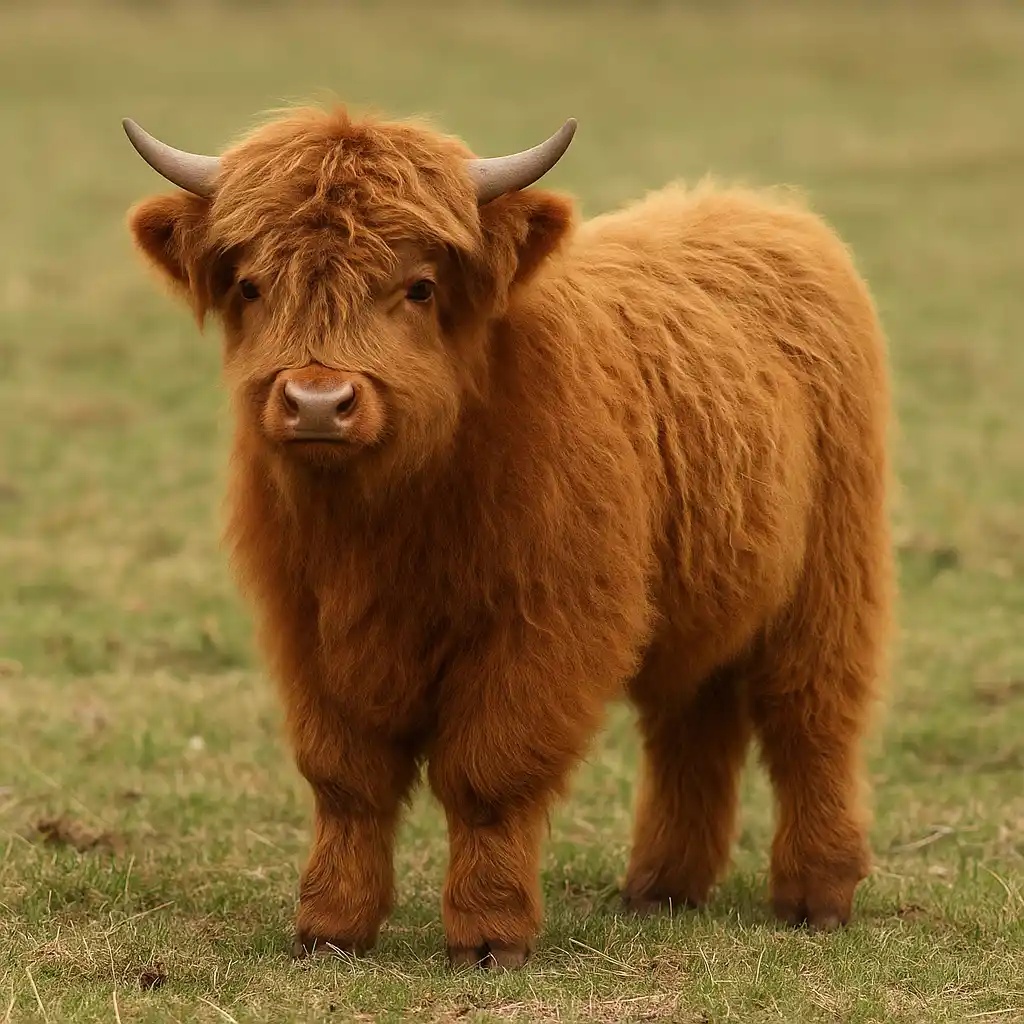
Mini cattle are cherished for their friendly and easygoing demeanour, making them perfect companions, therapy animals, and well-suited for small-scale farms. When breeders choose these animals, they place a premium on selecting those with calm and gentle personalities.
This attribute is particularly prized in various settings where these tiny cows might interact with people or other animals. Breeders pay close attention to how the cows engage with humans and their fellow animals, looking for patience, obedience, and a cheerful willingness to interact.
This friendly nature not only defines this highland cow as good to your farm but also makes them beautiful additions to environments where a calm and affable disposition is highly valued.
Ensuring the Well-being of Future Cattle Breed
Taking good care of the Highland cows’ breeding stock and future generations is crucial, so breeders prioritize their well-being through thorough health screening.
They regularly take the animals to the veterinarian for checkups, testing for potential genetic issues and watching for infectious diseases.
This careful and proactive approach isn’t just about the current generation but also ensures that the pack stays healthy and capable of producing youngsters with fewer health concerns. It’s all about making sure the animals lead healthy and happy lives, which, in turn, contributes to the welfare of the entire breeding community.
Breeding practice of miniature cow
Mini Highland cow breeding, breeders blend tradition and science to preserve the breed’s purity and introduce genetic diversity. They carefully select breeding stock free from defects and with desirable traits. Choosing individuals from different bloodlines minimises inbreeding and promotes herd health.
Guardians of the Scottish highland cattle Breed
Mini Highland cow breeders are driven by an unwavering passion to preserve the breed’s distinct charm. This dedication is evident in their steadfast commitment to justify the highest standards of care and ethical breeding practices.
The unwavering devotion of breeders is the cornerstone of the breed’s enduring success and popularity.
The Future of Mini Highland Breeding
As the agricultural landscape evolves, so does the breeding and care of mini highland cows. Breeders are constantly adapting to new technologies, incorporating data-driven approaches to breeding, and exploring innovative feeding plans to optimize the health and productivity of these miniatures.
Sustainability remains a key focus, with breeders seeking to reduce environmental impact and encourage eco-friendly practices.
Breeding and Reproduction of Scottish Highland Cow
For those considering mini highland cow breeding, it’s essential to understand the intricacies of the process. The gestation period, birthing considerations, and caring for the newborn calf are crucial in ensuring a healthy and thriving herd.
With proper care, these miniature Scottish highland wonders can bring joy to your farm for generations.
Common issues affecting Mini Highland cows Breeding
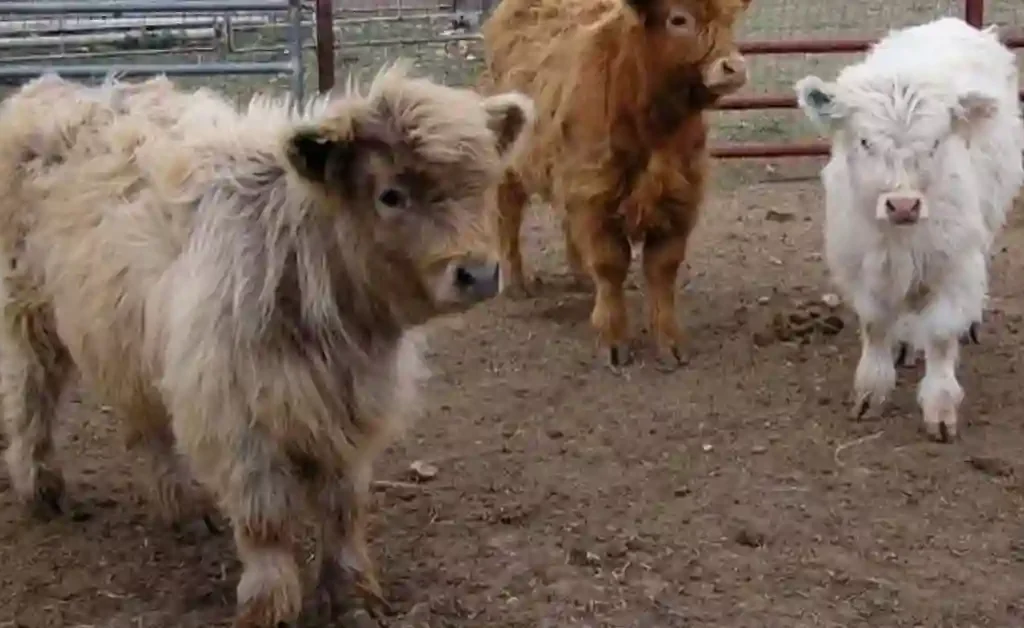
Starting to breed Highland cattle may require a deep understanding of their reproductive cycle and the care they demand. From conception to birth and beyond, ensuring the well-being of these gentle giants is paramount to maintaining a healthy and thriving herd.
1. Pregnancy
Mini Highland Cow Breeding article, let’s talk about pregnancy. Mini Highland cows typically have a gestation period of approximately 280 days. Now, providing them with a balanced diet, enough space for exercise, and a stress-free living environment is essential.
Regular veterinary surgeon inspections can help scan the pregnancy and ensure the health of both the mother and the calf.
2. Birth
However, being prepared for any potential issues is crucial. A clean, quiet, familiar birthing environment can minimize stress and encourage a smooth delivery. If assistance is needed, consulting an experienced veterinarian can ensure the safety of the mother and the newborn highland calf.
3. Calf Care
Mini highland cow breeding calf care is a crucial part. The first few months of a calf’s life are in serious condition for its growth. Ensuring access to clean water, a nutritious diet, and a safe environment is crucial. Regular handling and gentle interactions can help socialize the calf and prepare it for future interactions with humans.
4. Postpartum Care
After giving birth, the mother cow requires ample rest and nutritious food to replenish her energy and support lactation. Close monitoring during this period is essential to detect any signs of infection or distress.
Providing the calf with colostrum, the first milk produced by the mother, within the first few hours of life is crucial for its immune system development
5. Long-Term Care
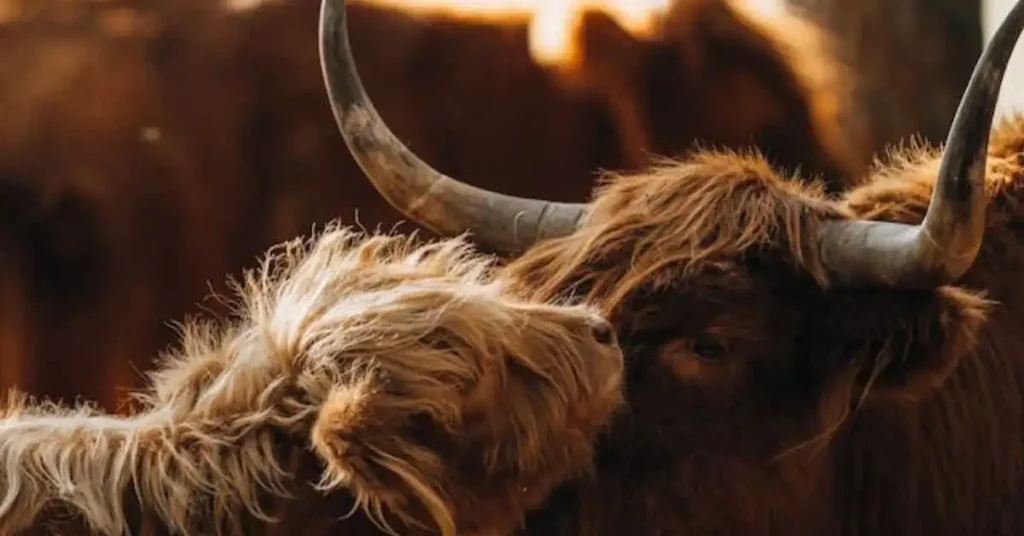
Mini Highland cows breeding are relatively low-maintenance animals, requiring regular grooming, hoof trimming, and parasite control. Providing them entrance to pasture, fresh water, and shelter throughout the year is needed for their overall well-being.
By perceiving the reproductive process and providing proper care throughout pregnancy, birth, and beyond, breeders can ensure the health and life of their Mini Highland cow herds, ensuring that these moderate cows continue to grace our farms for creation to come.
Challenges in Raising Mini Highland Cattle
While Highland cows are becoming increasingly popular, charming and relatively low-maintenance animals, raising mini highland cow breeding comes with challenges. Here are some possible issues to be aware of:
1. Genetic defects
Scottish Highland cows are a relatively new breed and they are still open to some genetic defects. Responsible breeders work to minimize this risk by carefully selecting breeding pairs and shielding for known genetic disorderliness.
However, it is essential to be aware of the possibility of this issue and to choose a breeder who takes the health of their animals seriously.
2. Inbreeding
Due to the compact size of the cow inhabitants, there is a risk of incest. This can cause a diversity of health problems, including birth defects, infertility, and a shortened lifespan.
Breeders should carefully select breeding pairs to keep away from incest and should consider using artificial seeds with sperm from independent bulls.
3. Hoove
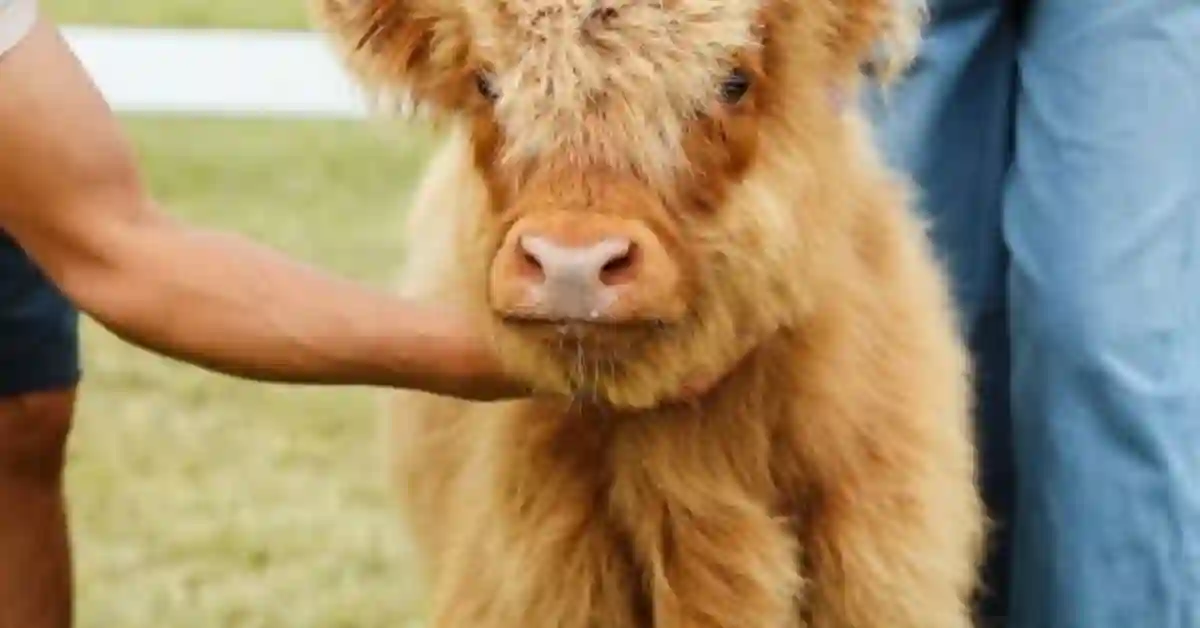
Mini highland cow breeding, Hoove is a state that can affect cattle that graze on rich pastures. It is caused by a buildup of gas in the stomach, which can cause swell, pain, and even death. Micro Highland cows are particularly capable of hooing because of their small size and tendency to overeat.
To prevent hooves, it is essential to provide animals access to dry hay and pasture and avoid grazing them on rich pastures during hot weather.
4. Predators
Miniature Highland cows are smaller and more at risk than normal-sized cattle, making them more open to predation by brush wolves, dogs, and other predators. It is essential to provide animals with safe fencing and shelter and to be careful about potential predators.
5. Parasites
In mini highland cow breeding, Scottish cattle are capable of the same parasites as other small cattle, including worms, ticks, and flies. It is crucial to apply a regular parasite to keep animals healthy and stop the spread of disease.
Mini Highland cow competitors breed by breeder
Mini highland cow breeding, now we talk about competitors’ breeds.
Angus:
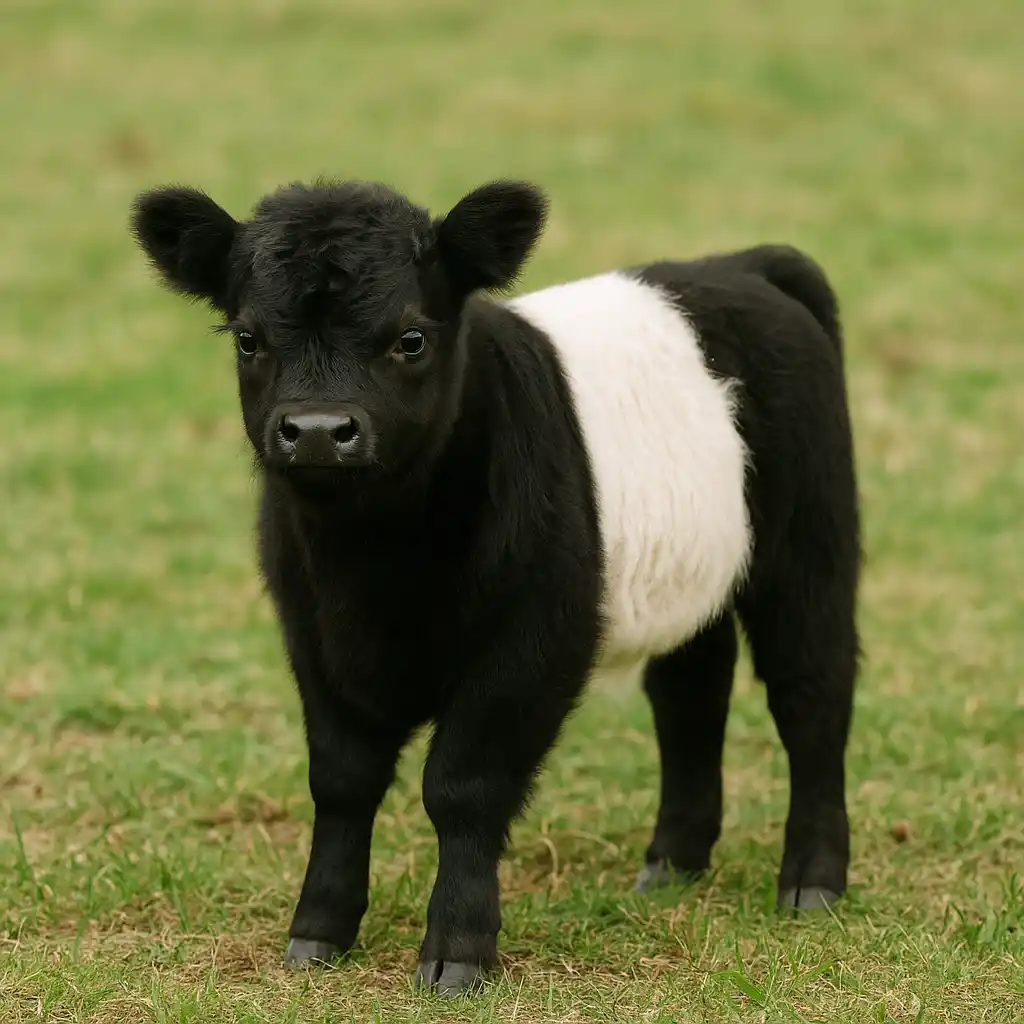
Angus is a black Mini Highland cow who has won numerous championships. He is known for his perfect conformation and his thick, black coat.
Bella:
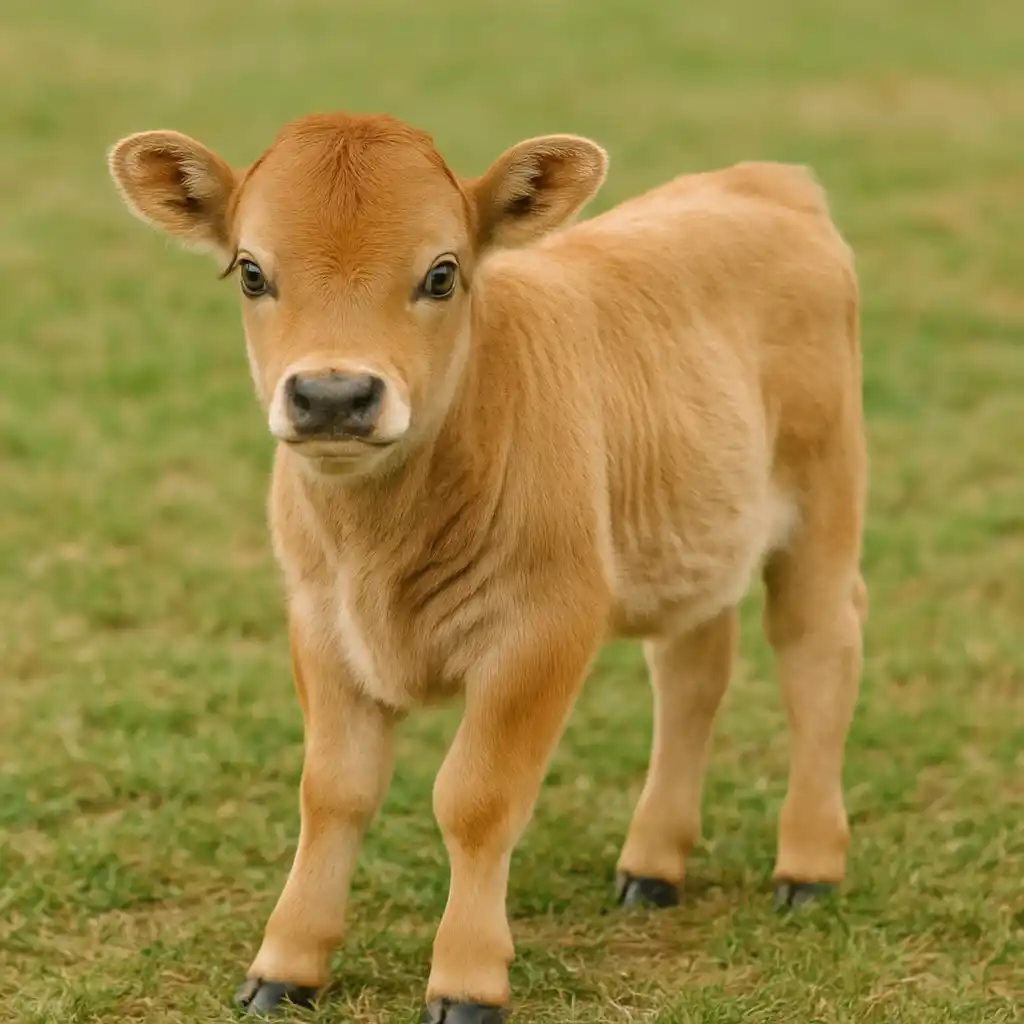
Bella is a red Mini Highland cow known for her gentle nature and sweet disposition.
She is a favourite among the judges and the crowd.
Chieftain:
Chieftain is a brown Mini Highland cow known for his strength and robust build.
He is a favourite competitor in the working cattle events.
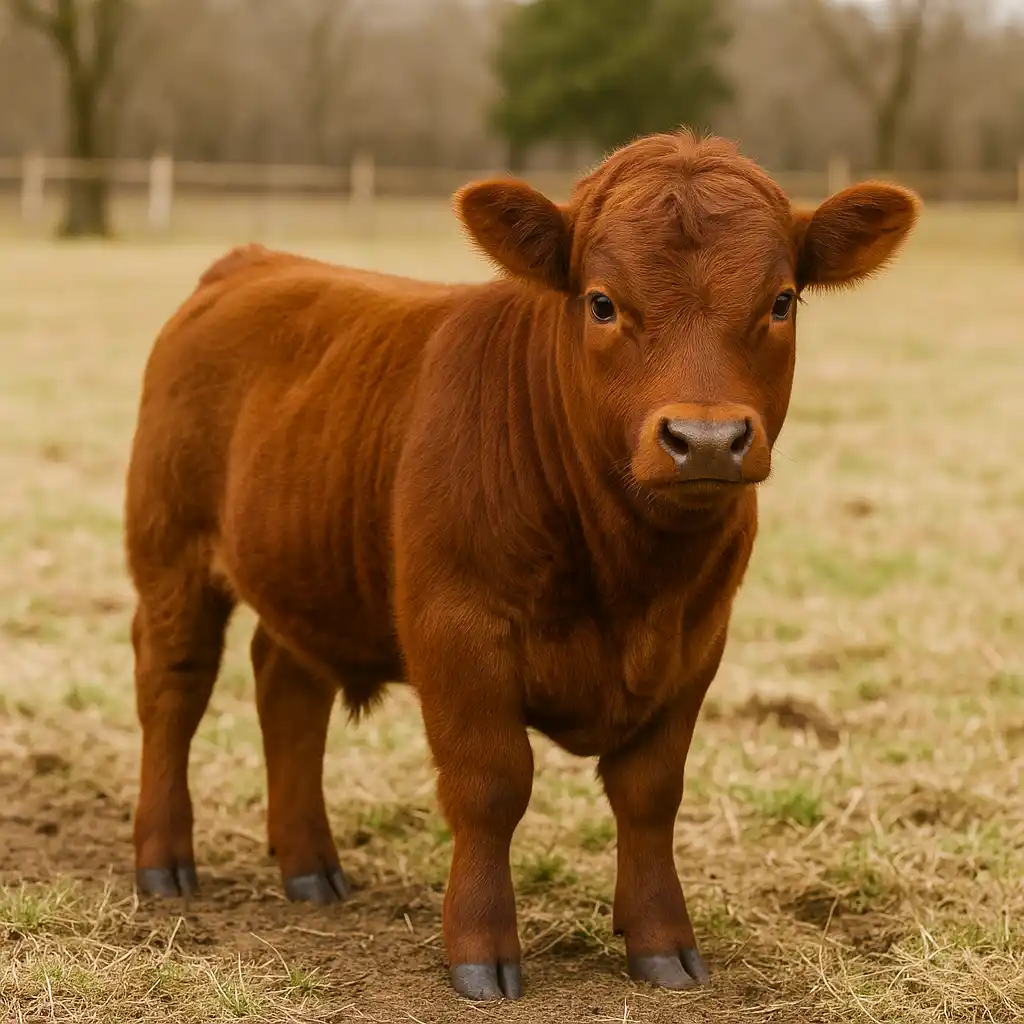
Dolly:
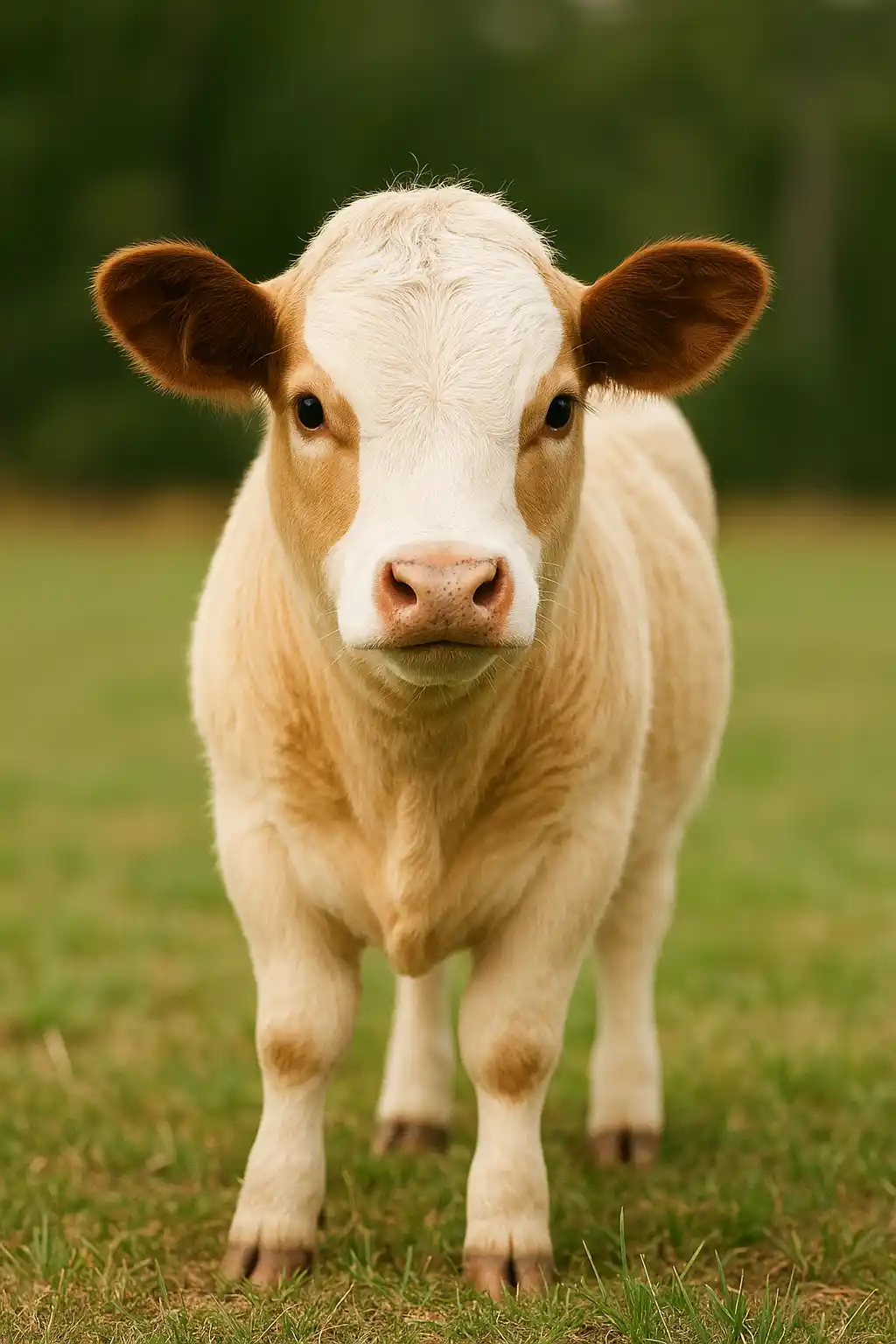
Dolly is a white Mini Highland cow known for her elegance and graceful gait. She is a favourite among the ladies.
Mini Highland Cows: Characteristics and Favourite Groups
| Name | Color Pattern | Known For | Favourite Among |
|---|---|---|---|
| Elsa | Black and White | Striking markings | Photographers |
| Highlander | Red and White | Proud bearing and regal appearance | Scots |
| Lassie | Brown and White | Intelligence and trainability | Working cattle trainers |
| Molly | Black and White | Gentle nature and sweet disposition | Families |
| Oreo | Black and White | Playful personality and love of attention | Children |
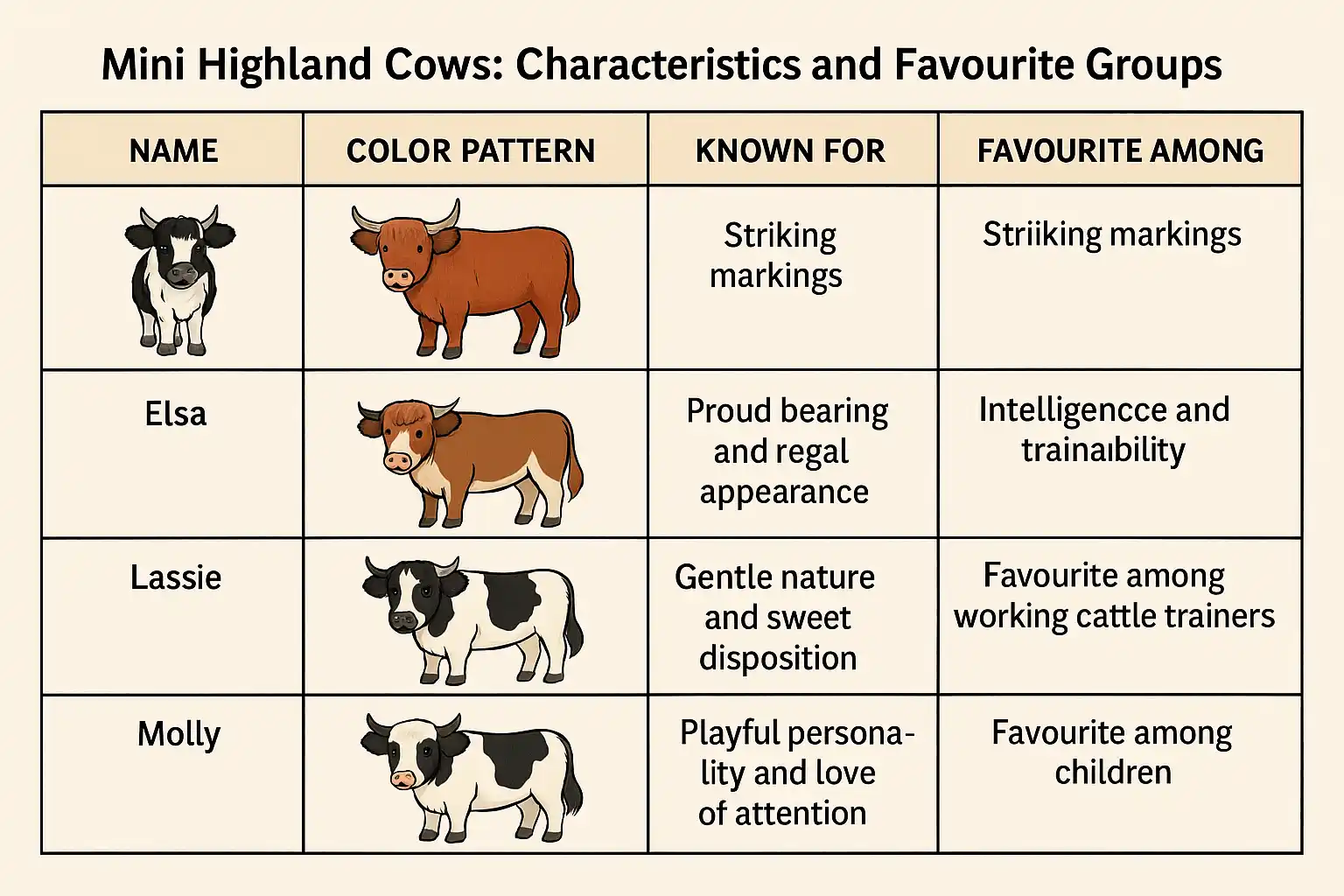
Patches:
Patches is a red and white Mini Highland cow known for its unique markings. She is a favourite among collectors.
Patches mini cows are a delightful breed known for their distinctive coat patterns, resembling a patchwork quilt. These charming bovines captivate with their unique and eye-catching appearances.
Beyond their adorable exterior, Patches mini cows are known for their friendly and docile nature, making them ideal companions for enthusiasts and animal lovers alike.

Conclusions:
Mini Highland cow breeding may be a careful and devoted task, where breeders protect the breed’s traditions while shaping its future. They carefully choose breeding animals, consider the complexities of genetics, and perform thorough health checks.
The passion and dedication of breeders, along with their ability to combine old practices with new technology, ensure that the breed’s unique charm and vigour are preserved.
Thanks to their efforts, Mini Highland cows continue to capture hearts and flourish, demonstrating the harmonious balance between tradition, innovation, and genuine care in responsible breeding.

